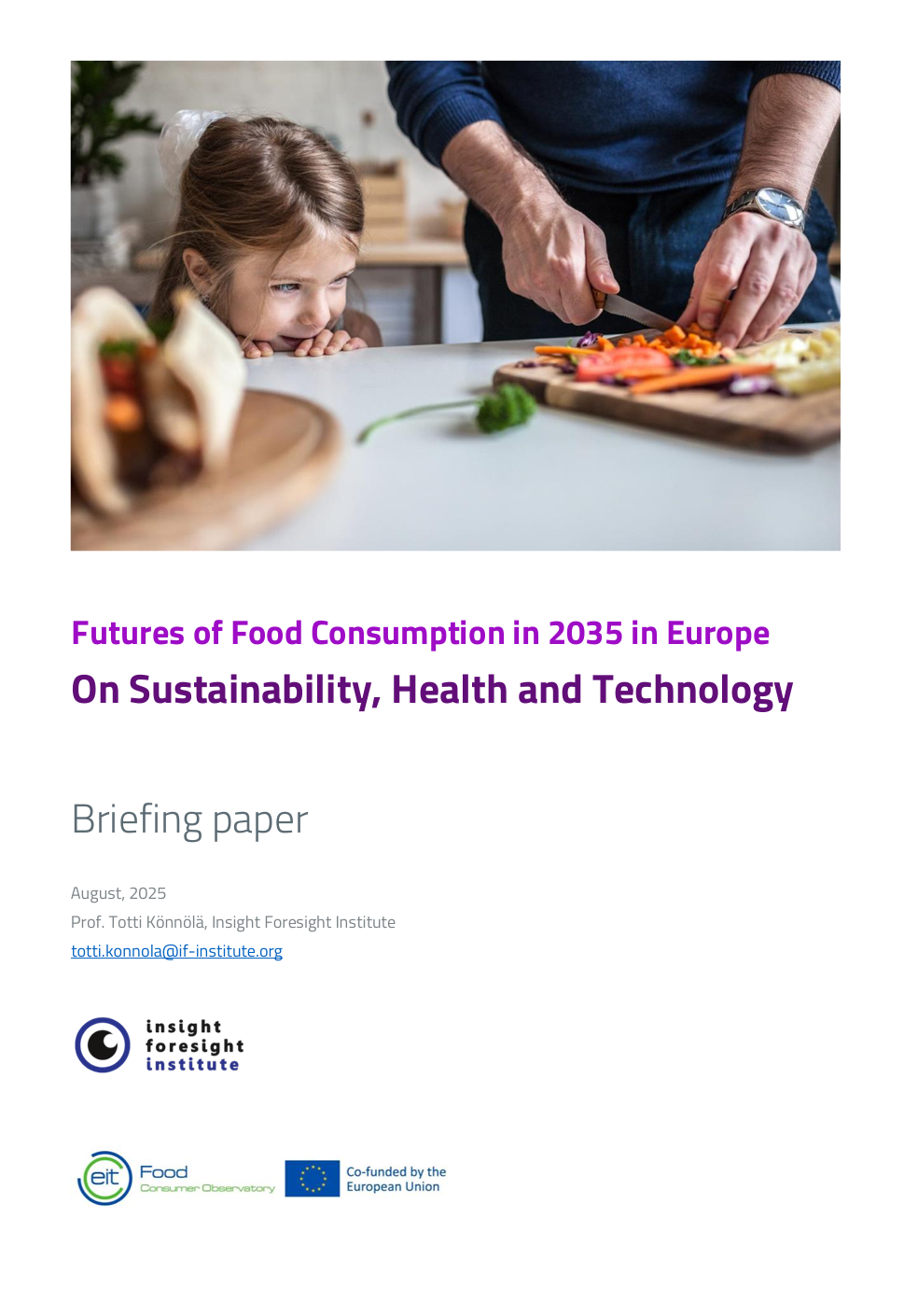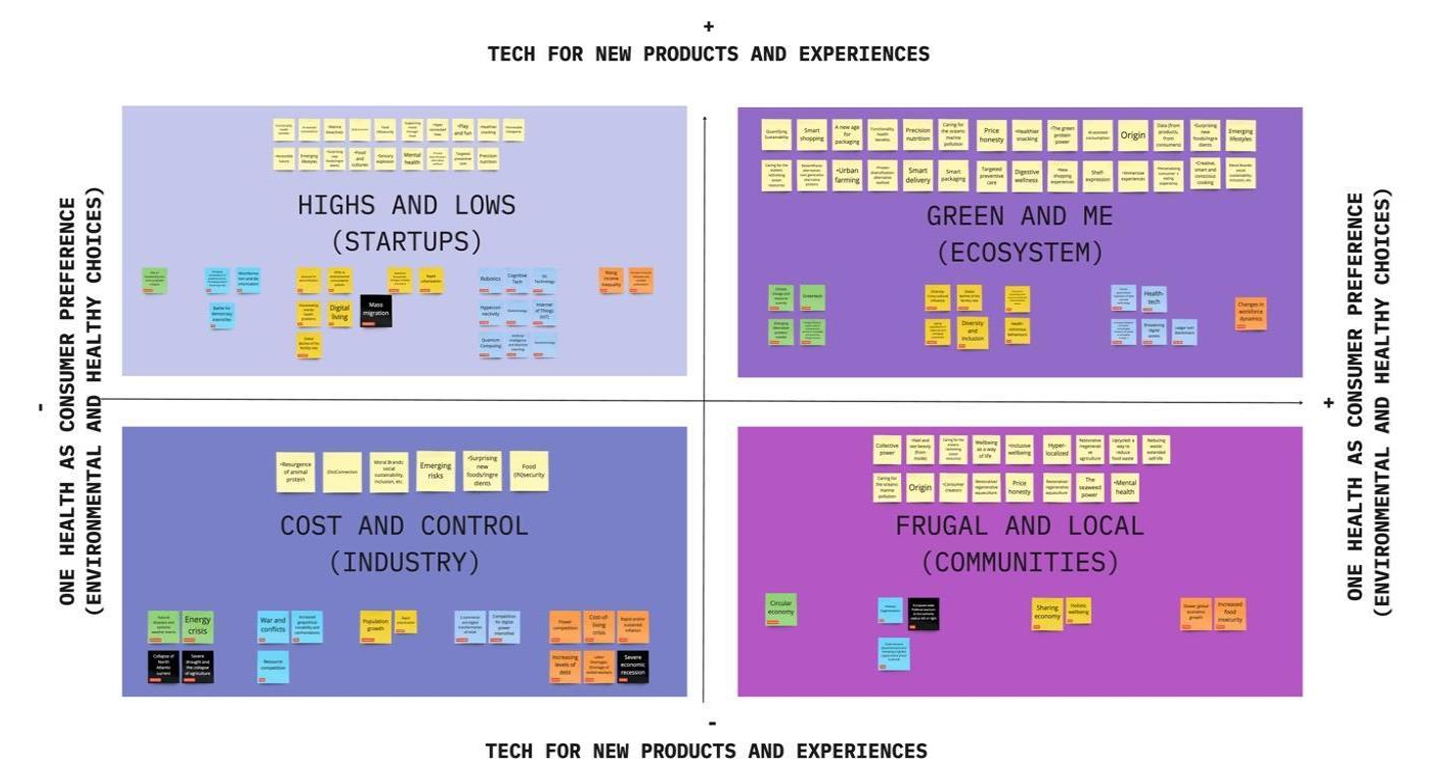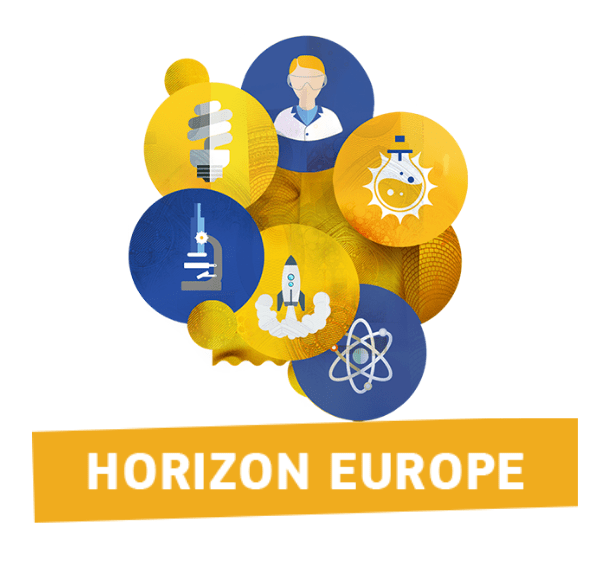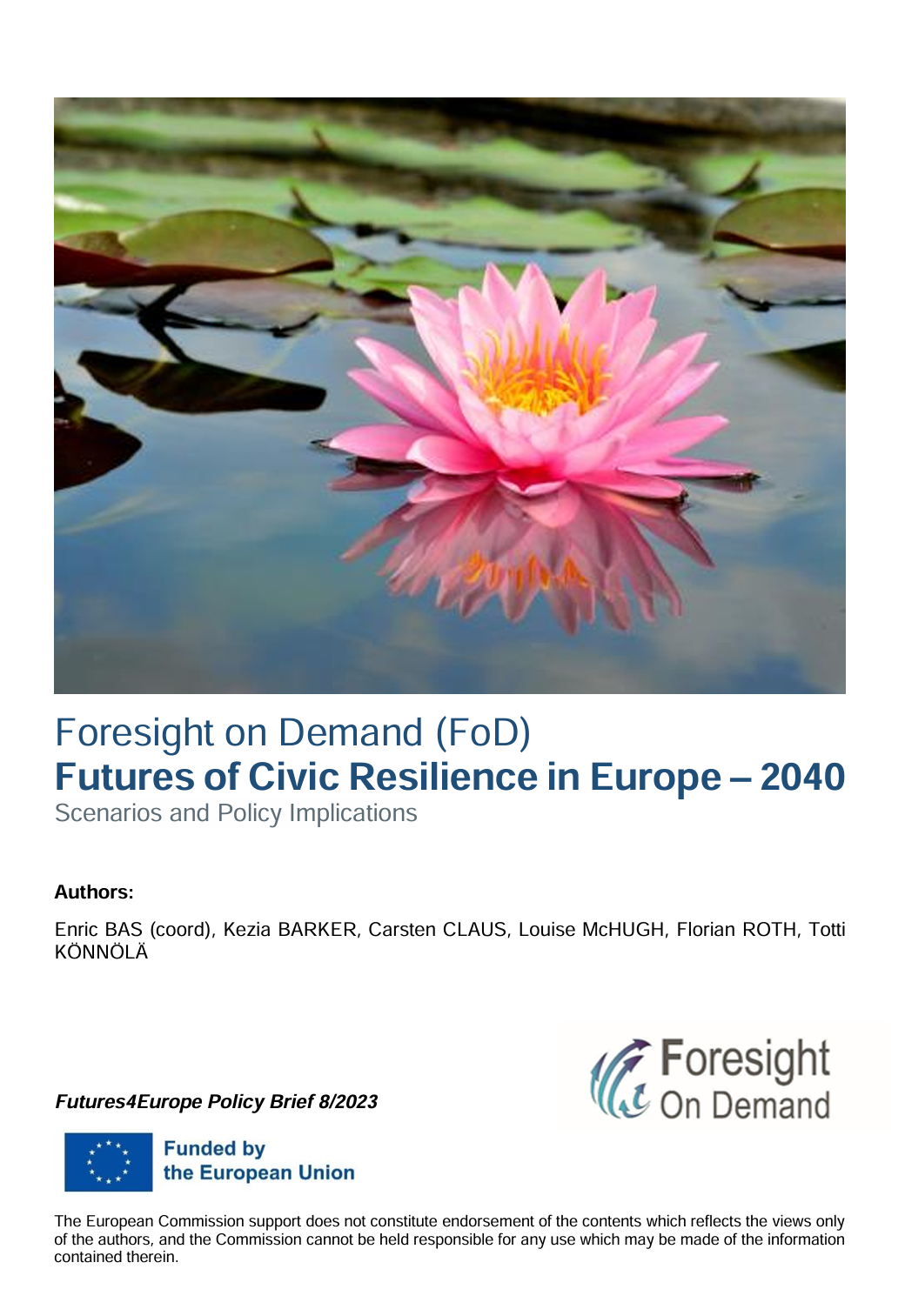Insight Foresight Institute participated in the project “Futures of Innovation and IP Regulation 2040”. The project explored how evolving dimensions of innovation could reshape intellectual property regimen by 2040 and their societal impacts, with a focus on implications for European research and innovation policy.
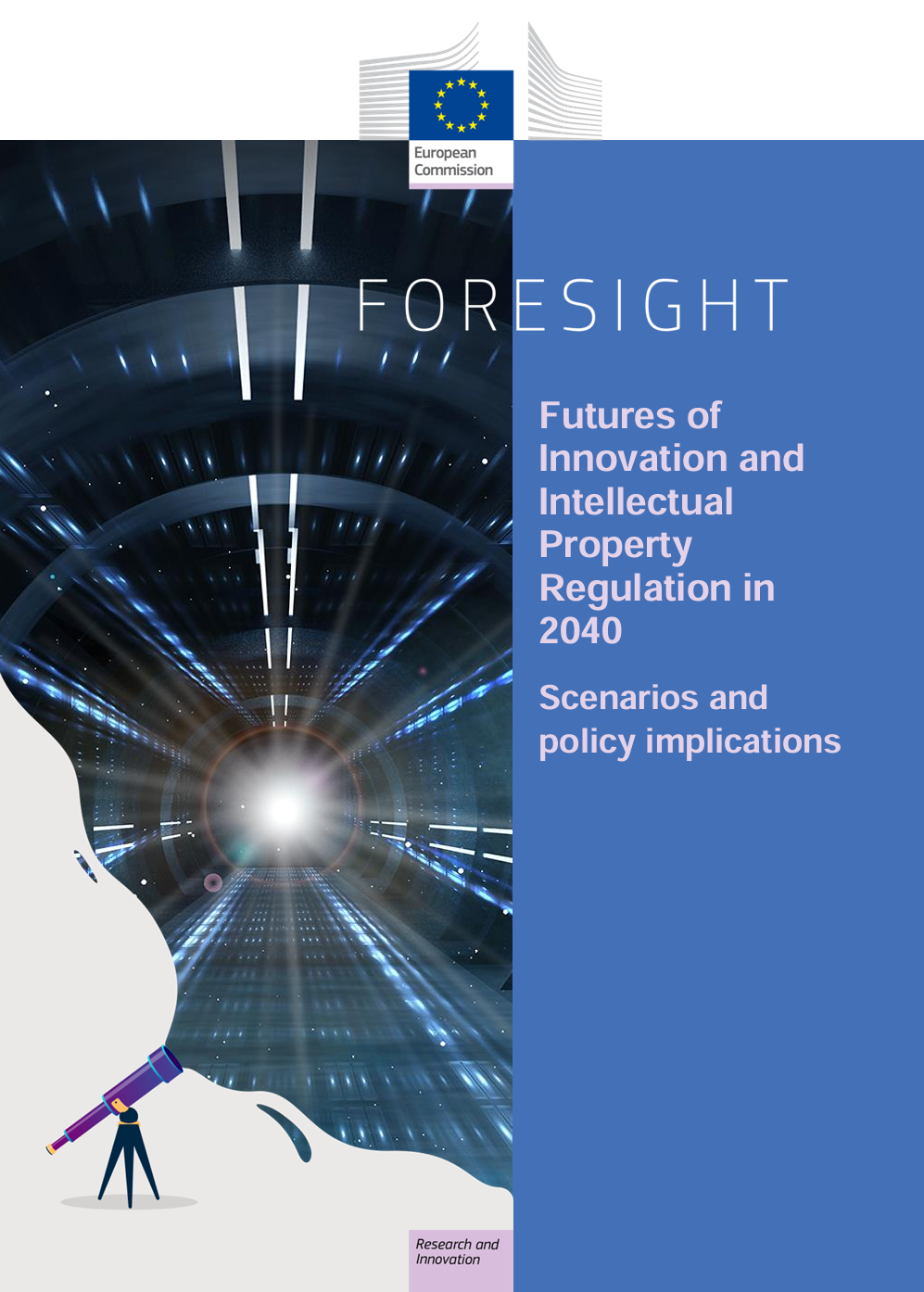
The work was part of the larger platform project named “European R&I Foresight and Public Engagement for Horizon Europe” for the European Commission, coordinated by Totti Könnölä, the CEO of Insight Foresight Institute and implemented by the Foresight on Demand consortium. The following five scenario narratives from 2040 are the result of the work in the scenario workshop and the subsequent internal discussions of the expert team:
- Scenario 1: The end of IP as we know it. By 2040, the digitalisation of the economy has been completed in all sectors. The private interests of platform companies drive the collection of lots of data, which is the main source of IP.
- Scenario 2: ‘Creative destruction’ of the IP regime. In 2040, the scenario is driven by the private interests of big companies in computing, ICT, medical devices, machinery and pharma which are located in the Global North and which are experienced players in the intellectual property system.
- Scenario 3: IP as a battlefield of geopolitics. In the context of rising geopolitical tensions, IP has become an instrument for different regions to protect their commercial interests, complementing their trade strategies. Europe focuses on granting high-quality patents.
- Scenario 4: Global and balanced IP for open innovation. Following a series of extreme weather events, health crises and wars, the achievement and implementation of science-based innovative solutions to global challenges is a key policy priority. Ips serve their main purpose by defining the boundaries of the inventions.
- Scenario 5: Open-source collaboration globalized innovation. By 2040, the IPR regimes for physical and information goods have diverged and are by and large disjunct. Open-source collaboration dominates innovation of digital and other intangible goods.
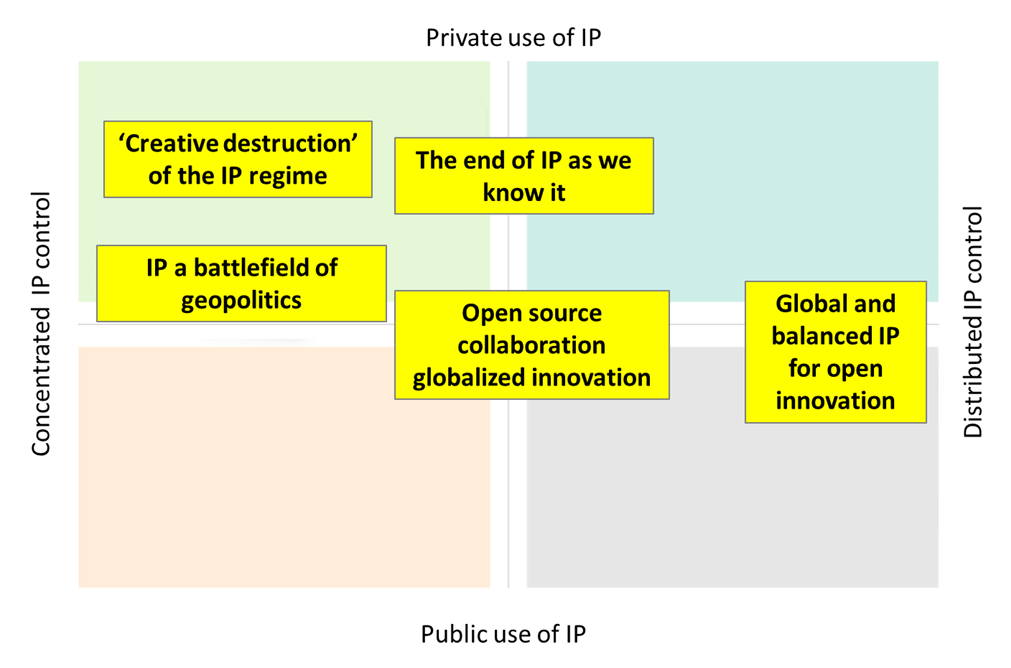
Throughout these five scenarios, policy implications are elaborated. Since IPRs are only an instrument to foster and direct innovation, implications for R&D and innovation policy need to be elaborated as much as the role of IPRs in achieving the SDGs, particularly in tackling climate change.
Additional information
Knut Blind, Mirko Böhm, Catalina Martínez, Andrea Renda, Claudia Tapia, Nikolaus Thumm, Matthias Weber and Totti Könnölä. “Futures of Innovation and Intellectual Property Regulation in 2040: Scenarios and Policy Implications”. Publications Office of the European Union, 2024.
